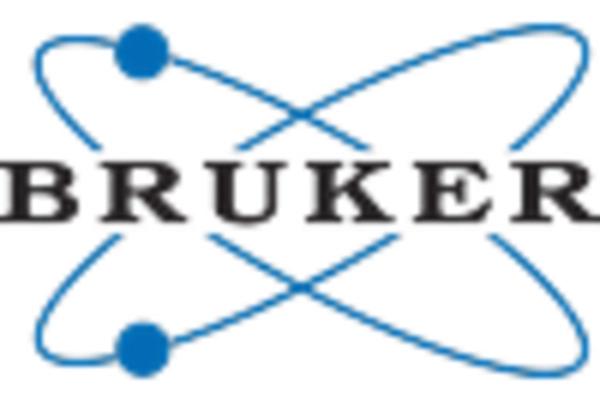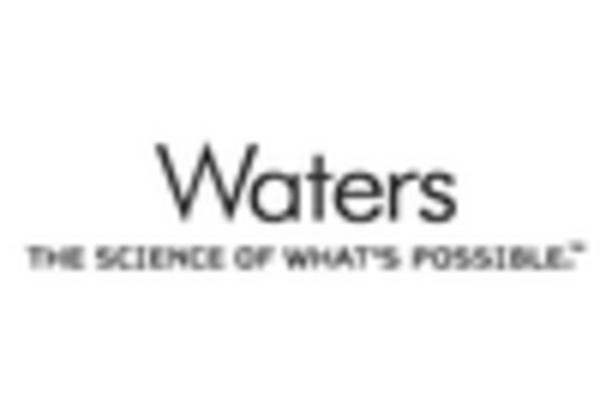Rising Demand for Precision Medicine
The life science-analytical-instruments market in France is experiencing a notable surge in demand for precision medicine. This trend is driven by the increasing focus on personalized healthcare solutions, which require advanced analytical instruments for accurate diagnostics and treatment monitoring. The French government has been actively promoting initiatives to enhance research and development in this area, leading to a projected growth rate of approximately 8% annually in the sector. As healthcare providers seek to tailor treatments to individual patient profiles, the need for sophisticated analytical tools becomes paramount, thereby driving investments in the life science-analytical-instruments market.
Expansion of Biopharmaceutical Research
The life science-analytical-instruments market is significantly influenced by the expansion of biopharmaceutical research in France. With the biopharmaceutical sector projected to reach €50 billion by 2026, there is an increasing requirement for advanced analytical instruments to support drug development and quality control processes. This growth is fueled by the rising prevalence of chronic diseases and the need for innovative therapies. Consequently, research institutions and pharmaceutical companies are investing heavily in analytical technologies, which is likely to bolster the life science-analytical-instruments market in the coming years.
Growing Focus on Environmental Monitoring
The life science-analytical-instruments market is also being driven by a growing focus on environmental monitoring in France. As regulatory bodies emphasize the importance of environmental health, there is an increasing need for analytical instruments that can accurately assess environmental samples. This trend is particularly relevant in the context of public health, as environmental factors are closely linked to health outcomes. The demand for such instruments is likely to grow, with projections indicating a potential increase of 7% in the market as organizations seek to comply with stringent environmental regulations.
Advancements in Automation and Data Analytics
The life science-analytical-instruments market is witnessing advancements in automation and data analytics, which are transforming laboratory operations in France. The integration of automated systems and sophisticated data analysis tools enhances the efficiency and accuracy of analytical processes. This trend is particularly relevant as laboratories strive to manage increasing workloads and complex data sets. The adoption of these technologies is expected to drive market growth, with estimates suggesting a rise of approximately 5% in the life science-analytical-instruments market as organizations seek to optimize their analytical capabilities.
Increased Investment in Healthcare Infrastructure
In France, Increased investment in healthcare infrastructure is benefiting the life science-analytical-instruments market. The French government has allocated substantial funding to modernize laboratories and healthcare facilities, which is expected to enhance the capabilities of analytical instruments. This investment is part of a broader strategy to improve healthcare delivery and research outcomes. As a result, the demand for high-quality analytical instruments is anticipated to rise, potentially leading to a market growth of around 6% over the next few years. This trend underscores the importance of robust analytical capabilities in advancing healthcare solutions.
















